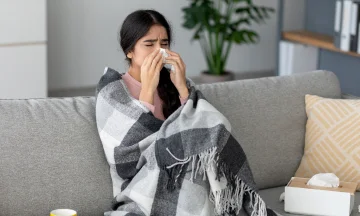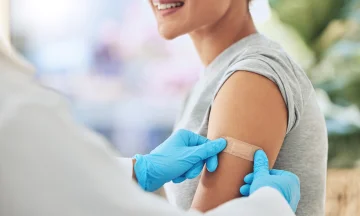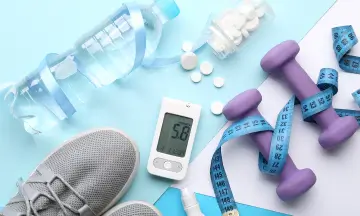
In the world of healthcare, there's nothing more crucial than Patient Safety. It's the bedrock of a trusting relationship between a patient and their healthcare provider. While doctors, nurses, and other medical professionals are at the forefront of this effort, patients also play a significant role. By being proactive and informed, you can contribute to a safer healthcare experience for yourself and your loved ones.
The Cornerstone of Care: Patient Safety
At its core, patient safety is about preventing errors and adverse events in the healthcare system. It's a continuous journey of improvement, learning from mistakes, and implementing best practices. While healthcare institutions are constantly working to enhance their safety protocols, an informed and engaged patient is one of the most powerful safeguards against potential harm.
5 Simple Patient Safety Tips to Empower You
-
Be an Active Participant in Your Care: Don't be afraid to ask questions. If you don't understand a diagnosis, a treatment plan, or a procedure, speak up. You have a right to know and understand every aspect of your healthcare. Take notes, bring a trusted family member or friend to appointments, and ask for written information about your condition.
-
Verify Your Identity: This might seem obvious, but it's a critical step. Before any procedure, medication administration, or test, ensure the healthcare provider has correctly identified you. You can do this by stating your name and date of birth. This simple act helps prevent errors related to misidentification.
-
Communicate Your Full Medical History: Be transparent with your healthcare providers about all your medical conditions, allergies, and previous surgeries. A complete and accurate medical history is essential for making safe and effective decisions about your care. Even seemingly minor details can be important.
-
Know Your Healthcare Team: Take the time to learn the names and roles of the doctors, nurses, and other staff members caring for you. This helps create a more personal and accountable environment and ensures you know who to talk to if you have concerns.
- Speak Up About Your Concerns: If something doesn't feel right, say so. If a medication looks different than what you've had before, or if a caregiver seems rushed or distracted, politely voice your concerns. Your instincts are an important part of the safety net.
A Deeper Dive: Medication Safety
One of the most common areas for potential errors is medication management. This is where your vigilance can truly save lives. Medication Safety is a shared responsibility.
Here are specific tips for ensuring your medications are safe and effective:
-
Understand Your Prescriptions: Before you leave the doctor's office or pharmacy, make sure you understand the name of the medication, what it's for, how to take it (e.g., with or without food), and what potential side effects to watch for. Ask for a printout of this information.
-
Create a Medication List: Keep an updated list of all your medications, including prescription drugs, over-the-counter medicines, vitamins, and herbal supplements. Include the dosage and frequency for each one. Share this list with every healthcare provider you see.
-
Check the "5 Rights": Before taking any medication, especially in a hospital or clinic setting, you should confirm the "5 Rights" with the healthcare provider:
-
Right Patient: Is it for you?
-
Right Drug: Is it the correct medication?
-
Right Dose: Is the dosage correct?
-
Right Time: Is it being given at the right time?
-
Right Route: Is it being administered correctly (e.g., orally, intravenously)?
-
Be Aware of Look-Alike, Sound-Alike Drugs: Many medications have names that sound or look similar. Be particularly careful with these, and always double-check the label.
-
Ask About Allergies: Before any medication is administered, remind your healthcare provider of any drug allergies you have. This is a simple but vital step to prevent a serious allergic reaction.
Conclusion
Patient safety is not just a concept; it's a practice. It requires a partnership between healthcare providers and patients. By implementing these simple Patient Safety Tips and being particularly mindful of Medication Safety, you become an essential part of your own healthcare team. Your proactive engagement can prevent errors, improve outcomes, and ultimately, save lives. Remember, your health is your greatest asset—take an active role in protecting it.
FAQs
Q1: What is the single most important thing I can do for my own patient safety?
A1: Be an active and informed participant in your care. Don't be afraid to ask questions and voice your concerns. Your involvement is one of the most effective safety checks in the healthcare system.
Q2: How can I ensure my medications are safe, especially if I take several different ones?
A2: Create a comprehensive and up-to-date list of all your medications, including over-the-counter drugs and supplements. Share this list with every healthcare provider you see, and ask questions about new prescriptions. You should also confirm the "5 Rights" (Right Patient, Drug, Dose, Time, Route) with your healthcare provider.
Q3: What should I do if I think there has been a medical error?
A3: First, remain calm and immediately inform a healthcare professional, such as a nurse or doctor. Clearly explain your concern and why you believe an error has occurred. Most healthcare facilities have a patient safety officer or a patient advocacy department you can contact.
Q4: Is it rude to question my doctor or nurse?
A4: No, it is not rude. Healthcare professionals expect and appreciate patient engagement. Asking questions is a sign that you are taking an active role in your health, which is a positive thing. A good healthcare provider will welcome your questions and provide clear answers.
Q5: How can I protect my personal health information?
A5: Always verify that you are speaking with an authorized healthcare professional before sharing any personal information over the phone or email. When in a clinic or hospital, ensure your records are handled discreetly. Be aware of who can access your information and if you have any questions, ask the facility's privacy officer.














